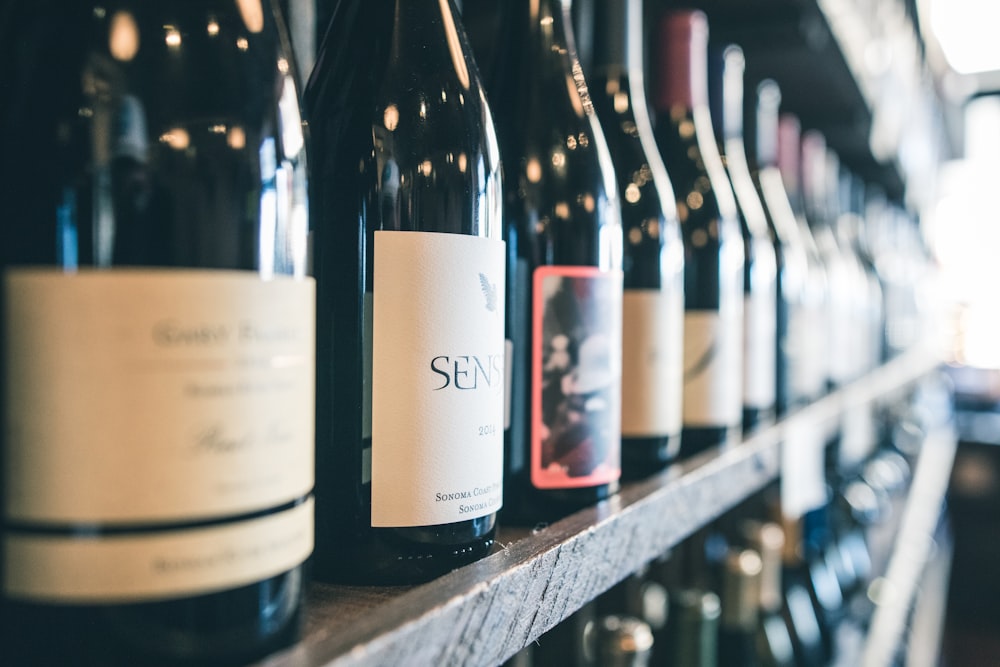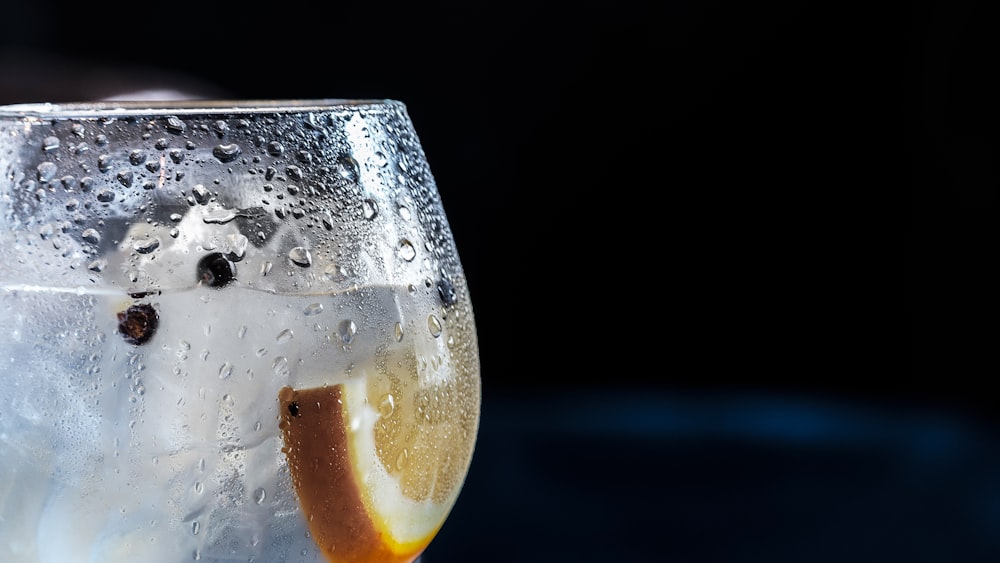Roar writer Rhian Kerslake on how to drink sustainably during Freshers’ Week.
Heads up – we’ll soon be seeing hordes of thirsty freshers lay siege to Piccadilly Circus, Soho and Camden (lockdown permitting). However, socialising – though excellent fun – can be surprisingly tough on the planet (not to mention your long-suffering bank account). Here, I’ll be demonstrating how we can all make slightly better choices while still waking up with a stinking hangover on Sunday. ‘Sustainable’ and ‘eco-friendly’ are thrown about pretty willy-nilly here, but the gist of the two is the same. Ultimately, we just want to know the choice chugs from the bad bevvies. Â
Beers, Bottles and Breweries
The classic lager: smooth, crisp and clutched in the mitts of a baby-faced 18-year-old, is a big contender for the most popular choice. Carlsberg, like many companies, is on a sustainability kick: in 2019, they’ve reduced CO2 emissions by 4.5%, water usage by over 3% and are looking at using recycled shrink-wrap in transport. Important when the beers are shipped from their brewery in Manchester, 208 miles from London. Though these numbers are nice, the company acknowledges it’s still a long way from sustainable.Â
Heineken is another big player in the industry– and not just the lager. Heineken UK owns almost half of the drinks seen at a party: Fosters, Strongbow, Bulmers and Bierra Moretti (to name but a few!). This company is one of the more forward-focused organisations. They’ve reduced their water usage by almost a quarter since 2008, getting CO2 production down to 3.11kg of CO2 per 100L of cider and lager. They also source all of their apples from British orchards – 30% of apples grown in the UK go towards Heinekens’ ciders! Almost 80% of the orchards they source from are sustainable farms, too. Their mill is located round the corner from their orchards, reducing transport emissions. Finally, the unusable side product from their milled apples (called pomace) is transported to a nearby farm for biogas energy. Â
Anheuser Busch may ring a bell to those with a taste for Budweiser, Stella Artois, Corona and Leffe. That’s because Anheuser, like Heineken, is another alcohol conglomerate. They’ve gone for a much flashier route to sustainability, having ordered a fleet of Tesla and Nikola zero-emission trucks. They’ve invested a quarter of a million into glass recycling capabilities near their Texas plant. Though they’ve also hosted many river-stewardship programmes, their efforts are limited to the US. Sure, international markets are an important aspect to global eco-sustainability – but it’s without doubt better to buy as local as possible. Â

Thankfully, London is teeming with independent breweries. Though slightly more expensive, the quality and sustainability of these beers, lagers and ales are far greater. Breweries such as Fourpure brew as local as possible from their Bermondsey brewery. Speaking of, there’s the Bermondsey Beer Mile – a full stretch of artisan and local craft breweries perfect for a classic pub crawl. Many of these small-scale breweries send their waste grains to British farms, too. If Bermondsey is a little far from you, why not set yourself the post-lockdown goal of discovering some nearby craft breweries? Not only can you find some gorgeous little haunts, but staggering back home is even easier!Â
Let’s have a w(h)ine.
If you’re a wine drinker, you may be upset to hear that Echo Falls’ sustainability measures pale in comparison to Heineken’s. However, all is not lost – boxed wine is one of the easiest ways to get your eco-friendlier wine fix (with up to 10x lower carbon emissions than bottled). Glass is harder to recycle in the UK than paper and cardboard. Even bottled Echo Falls, however, is more efficient than the more expensive options: fancy wines are bottled at their country of origin and shipped in crates, whereas budget wines such as Echo Falls are transported in bulk before being bottled here in the UK. Not only does this keep logistics costs down, it also produces far less CO2. Who knew being a cheapskate could be so great for the environment?Â
Dodgy Diageo
Those interested in spirits, you may be surprised to learn that many go-to drinks are from one company: Gordon’s, Smirnoff, Tanqueray, Captain Morgan’s and Baileys are all owned by the multinational Diageo. This company has made some sensible first steps toward sustainability. Gordon’s gin is undergoing a change to 100% recycled glass and 33% lighter bottles – useful when transported from its Cameron Bridge distillery in Scotland. Smirnoff is also switching to plastic bottles. Despite positive motions, Diageo is notoriously non-transparent on issues around child labour within its supply chain, failing to disclose how it ensures child labour is avoided. Furthermore, they “expect suppliers to respect the land rights of communities, including indigenous peoples,†with no methods of supervision explained. This tarnishes the eco-friendly shine they’ve given their products in recent years and undermines much of their supposed sustainability.Â
However, brands can change – and the way to do so is with your wallet. Here is a full list of Diageo’s brands, and my personal suggestions on alternatives:Â
- Guinness – choose Murphy’s Irish Stout (owned by Heineken, brewed in Ireland) or perhaps Young’s London Stout, brewed in Bedford, if you prefer slightly sweeter coffee notes. Â
- Gin (Aviation, Tanquerey & Gordon’s) – choose the Kennington-brewed Beefeaters if you’re feeling swish, or Lidl’s Finton’s gin if you’re on a budget. Craft gins have seen an explosion in popularity, with avant-garde projects like Dunnet Bay Distillery’s Rock Rose gin cropping up recently. This gin arrives in a pouch at your doorstep (just like the boxed wine – easier and cheaper to transport) and has an address stamped across the back. Once the pouch is empty, simply post it and it arrives back at its Scottish distillery to be recycled. Â
- Vodka (Ciroc, Ketel One & Smirnoff) – Element 29 vodka is sourced entirely from British produce, its wheat from East Anglia and copper from the Black Country. Sapling’s West London distillery approach this with a twist, too – not only do they distil their vodka nearby, with locally sourced GMO-free wheat, but they plant trees around London, Suffolk and Bristol as they do so!Â
- Bailey’s – try Edradour Cream Liqueur, made from whiskey brewed in Scotland’s smallest distillery. Failing that, you could look further afield to Italy for Haywines’ Coconut Cream Liqueur, sourced from organic milk, sugar, coconut and aromas. Eco-friendly cream liqueurs are still surprisingly hard to come by, however.Â
- Whiskey (Johnnie Walker, Crown Royal, Bulleit, Seagram’s, George Dickel, Caol Ila, Talisker, Lagavulin, Oban, J&B, Cardhu, Buchanan’s and Bells) – the sheer number of whiskey brands that Diageo owns makes the brand hard to avoid completely. If you’re a whiskey drinker, however, that makes it all the more important to show what matters to you. British-distilled whiskeys included Mortlach Rare, with its spicey liquid-gold qualities, and you may be familiar with Laphroaig, renowned for its smokiness and medicinal taste. One budget-friendly alternative is the Old Pulteney 12-year malt.
The Venue
The flat party will always have an undisputed eco edge due to a lower reliance on disposable cups and lack of large sound systems. But sometimes you just don’t want to invite the rabble round – enter the classic British pub. Let’s look at the biggest student pub chain in London: Wetherspoon. Though they have abolished all single-use plastic straws and cups, there’s a distinct lag in reducing plastic through other means (i.e. water bottles, food packaging and dairy cartons). They also don’t tend to source locally, resulting in a much larger carbon footprint. Their schemes to reduce emissions, as listed on their website, seem limited to LED lighting and free-cellar cooling systems (which circulate outside air internally, if it’s cool enough). Frankly, their attempts at ‘going green’ are about as appetising as that last tequila shot your mates 
 For those with a taste in wine, pop into Soho’s Antidote. They only partner with vineyards that use organic and biodynamic processes, eradicating any reliance on pesticides in the growing process. They also promote natural fermentation with native grape strains, pinnacles of sustainability within the wine industry. Â
For those with a taste in wine, pop into Soho’s Antidote. They only partner with vineyards that use organic and biodynamic processes, eradicating any reliance on pesticides in the growing process. They also promote natural fermentation with native grape strains, pinnacles of sustainability within the wine industry.  On a more sober note, the consumer is the most powerful component in any industry – if you’re actively working to be more eco-friendly, there is an abundance of better choices to make. This isn’t to say anyone who drinks Gordon’s gin or fancy bottled wine is a bad person, but knowledge really is power (even if you wake up with no recollection of the night before). Now, stay safe and go get pissed.Â
Â




















